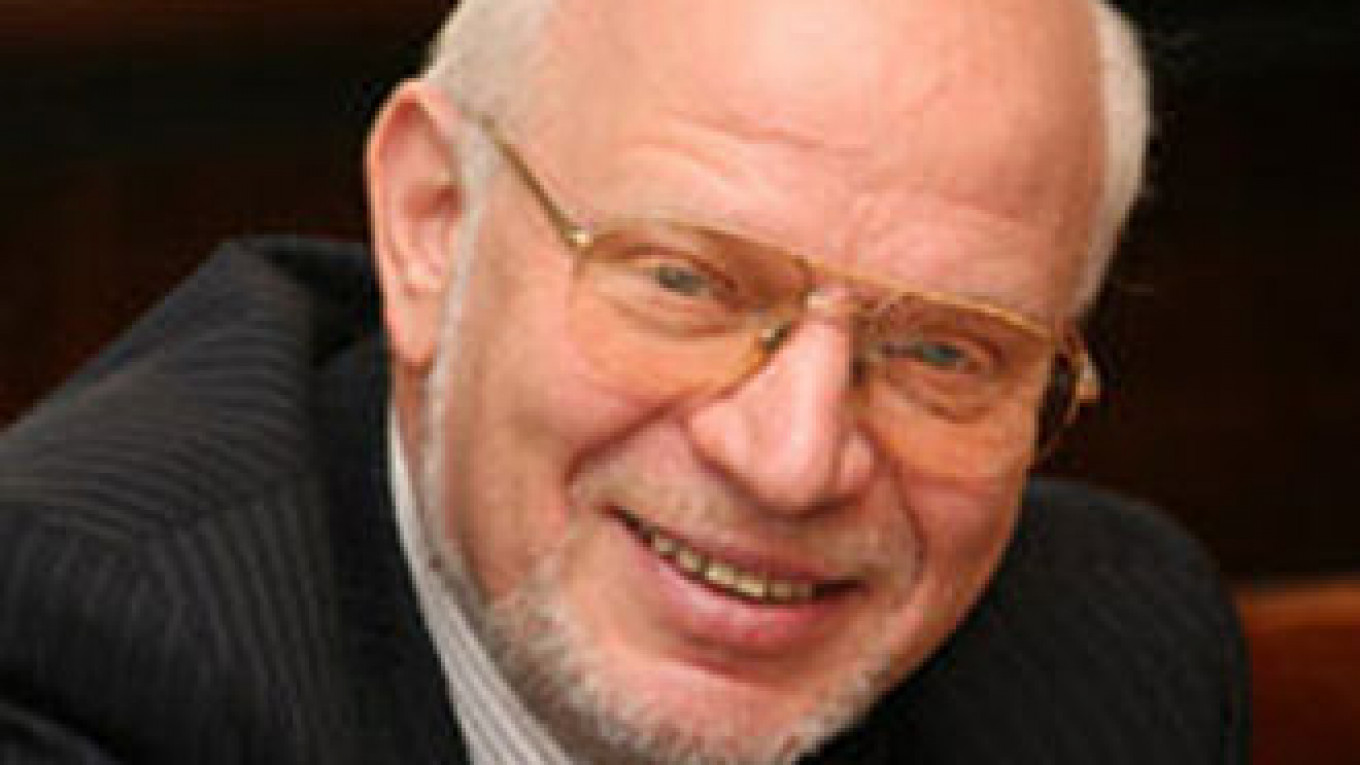President Dmitry Medvedev on Tuesday tapped an unexpected member from his human rights council to take over as chairman, surprising members who had expected the body's acting head to be given the influential post.
Mikhail Fedotov, a secretary of the Union of Journalists, has succeeded the council's founder and first leader, Ella Pamfilova, who resigned in late July after months of pressure from United Russia and pro-Kremlin youth groups.
Like Pamfilova, Fedotov was also made an adviser to Medvedev.
The choice came as a surprise to the council's members, who had expected Alexander Auzan to win the nod after more than two months as acting chairman.
But Medvedev decided on Fedotov, who was named to the council last year and was an author of the current law on mass media. And while colleagues welcomed Fedotov as a current council member, there was a hint of concern that Medvedev passed on the internal favorite, Auzan.
Lyudmila Alexeyeva, head of the Moscow Helsinki Group and a council member, praised Medvedev's choice as “good.”
“Fedotov has experience with both state and nongovernmental work,” Alexeyeva told The Moscow Times. “I am personally satisfied with the choice.”
Svetlana Gannushkina, chairwoman of the Moscow-based Citizens Aid Foundation and another council member, called Fedotov “a democratic person,” under whose leadership the council will be able to continue its work.
Fedotov, a 61-year-old lawyer, has chaired the Union of Journalists since 1998. Before that, he was a deputy mass media minister from 1990-92 and then press and information minister in 1993.
He then served as Russia's representative to United Nations cultural organization UNESCO from September 1993 to January 1998. Since then, he has been in private practice and headed several public organizations, including one to defend copyright protections.
In October 2009, the Foreign Ministry nominated Fedotov as Russia’s candidate to become the media representative to the Organization for Security and Cooperation in Europe, or OSCE, though he wasn't elected.
A former member of the liberal, pro-business Union of Right Forces, Fedotov was also a part of the 2008 Free Choice Committee. The group, led by Kremlin critic Garry Kasparov, formed in 2004 to oppose then-President Vladimir Putin after he was re-elected to a second term.
Both Alexeyeva and Gannushkina said they had expected Auzan to get the post.
Auzan, president of the Association of Independent Centers of Economic Analysis, was also proposed by Pamfilova as her replacement. Auzan, 56, a Norilsk native and 1979 graduate of Moscow State University, is a member of the business lobbying groups Opora and Delovaya Rossia. He is also a senior professor in Moscow State University's economics department.
“If the council members were electing their leader on their own, then [Auzan] would have been chosen,” Alexeyeva said.
Gannushkina said Auzan had already become the council's de facto leader over the past few months, while the appointment of Fedotov showed the Kremlin's concern about the group's growing autonomy.
“The council has become a structure that can act independently now,” Gannushkina said. “It has become united, which raised worries among the authorities,” she added.
Auzan welcomed Fedotov's appointment, saying their “views are close in many ways."
“The appointment of Fedotov is a good decision,” Auzan said, Interfax reported. “He is a person with a large working experience."
He added that the council's main concern had been whether the Kremlin would tap an outside official to head the body.
Fedotov said Tuesday that he was not planning to quit his post at the Union of Journalists.
“There are three major issues [to work on in the council]: 'de-Stalinization' of the public conscience, judicial and police reforms, as well as the supervision of children's and families' rights,” Fedotov said, Interfax reported.
He was unable to comment when reached by The Moscow Times on Tuesday evening.
Pamfilova could not be reached for comment Tuesday because her cell phone was switched off.
Lifenews.ru reported that she has started learning English on Malta, and is planning to go to the United States, where she has been invited to lecture.
In an interview with Interfax, Pamfilova called her successor “an acceptable candidacy.”
“It's good that the president appointed a new chairman from the council's members, not from outside,” Pamfilova was quoted as saying.
She was appointed as head of the Kremlin's human rights commission in 2002 by then-President Vladimir Putin. The commission was renamed a council in 2004.
Pamfilova has never explained her decision to resign, although her colleagues linked it to an escalating conflict with Nashi, a pro-Kremlin youth group.
Maria Kislitsyna, a spokeswoman of Nashi, expressed hopes that Fedotov would have a more cooperative relationship with the movement, unlike Pamfilova, whom she accused of supporting oppositional political views.
Editor's note: This article has been amended to say Mikhail Fedotov is one of the secretaries of the Union of Journalists, rather than its chairman.
A Message from The Moscow Times:
Dear readers,
We are facing unprecedented challenges. Russia's Prosecutor General's Office has designated The Moscow Times as an "undesirable" organization, criminalizing our work and putting our staff at risk of prosecution. This follows our earlier unjust labeling as a "foreign agent."
These actions are direct attempts to silence independent journalism in Russia. The authorities claim our work "discredits the decisions of the Russian leadership." We see things differently: we strive to provide accurate, unbiased reporting on Russia.
We, the journalists of The Moscow Times, refuse to be silenced. But to continue our work, we need your help.
Your support, no matter how small, makes a world of difference. If you can, please support us monthly starting from just $2. It's quick to set up, and every contribution makes a significant impact.
By supporting The Moscow Times, you're defending open, independent journalism in the face of repression. Thank you for standing with us.
Remind me later.






